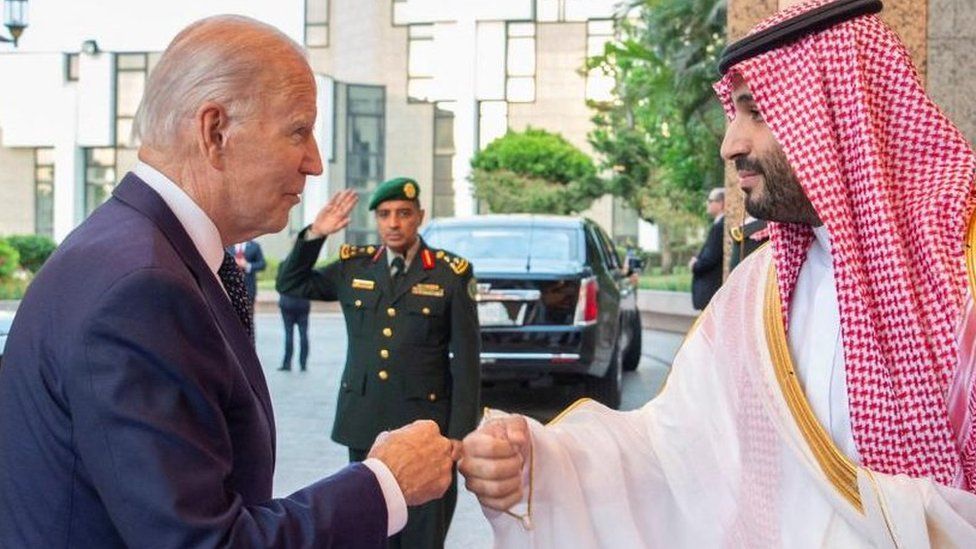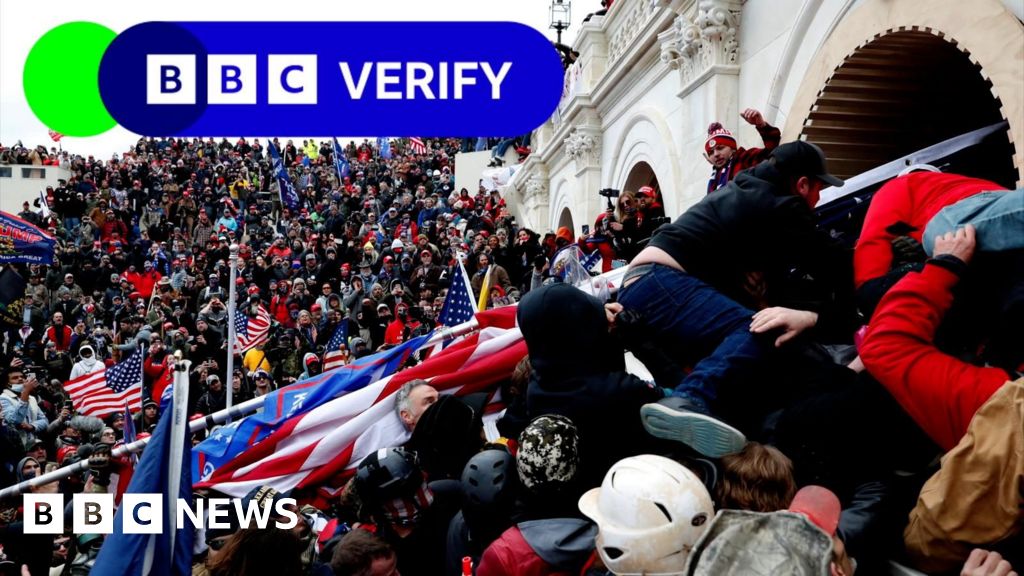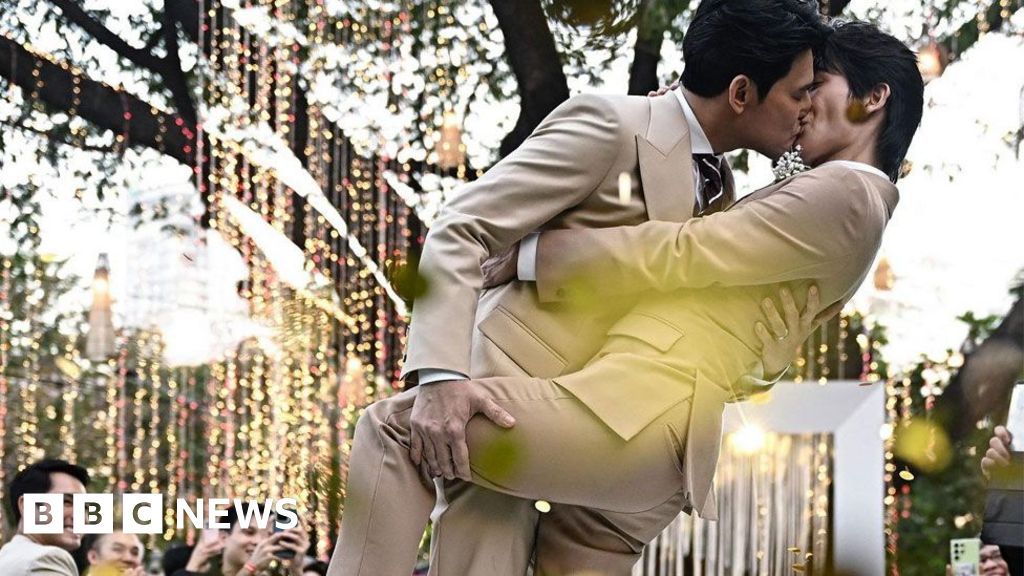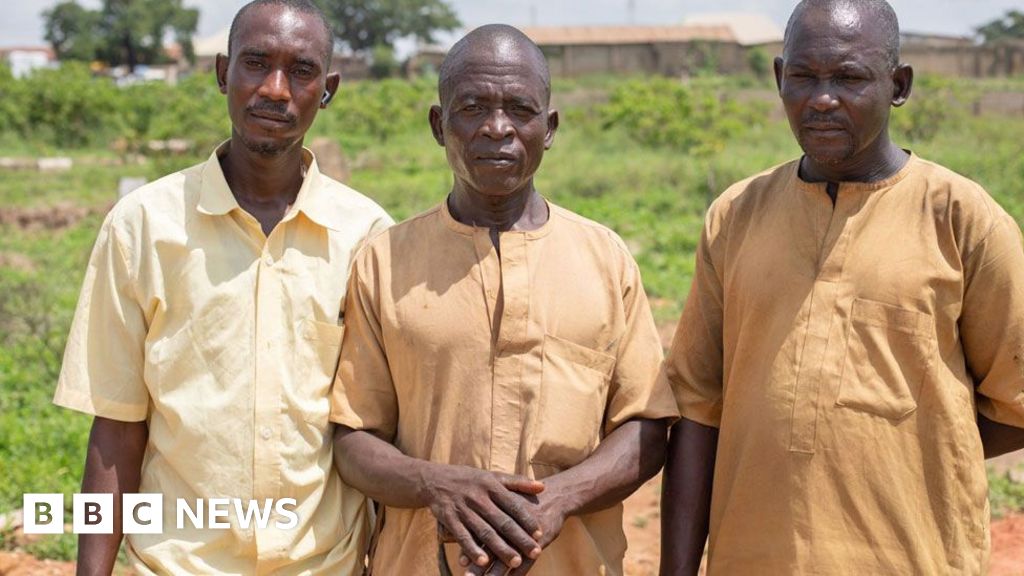ARTICLE AD BOX
By Anna Foster
BBC Middle East correspondent
 Image source, Reuters
Image source, Reuters
President Biden was pictured fist-bumping the Saudi crown prince before their talks
It was a striking photograph. The US president and the man he'd called a pariah, bumping fists in the gilded splendour of Jeddah's royal palace.
Saudi Arabia was always going to be the controversial stop on Joe Biden's first trip to the Middle East as US president.
Just four weeks earlier, Mr Biden had said he wouldn't meet Crown Prince Mohammed bin Salman on his visit here.
As he settled into the White House during his first few weeks in the job, he refused to even speak with Saudi Arabia's de-facto ruler.
Mr Biden made the "pariah" comment on the US election campaign trail back in 2019.
It came after the CIA concluded the crown prince had approved the brutal killing of the journalist Jamal Khashoggi inside the Istanbul consulate.
Relations were frosty. Then came the announcement of the president's visit.
The stage was set long before Air Force One roared loud and low over Jeddah, filling the quiet sky with the sound of powerful jet engines.
Flags had been hung, the green and white of Saudi Arabia set against the USA's stars and stripes. They lined the main route from the airport to the royal palace, flanking roads that had been closed and cleared. Police vehicles, their lights flashing in the sun, were poised every few yards to maintain the tightest of security.
The Saudis knew the world would be watching this meeting,
They wanted the rest of the Middle East, and the international community, to sit up and take notice of the favour they had been granted by the US president.
In the hours after the talks between the two leaders here in Jeddah, I sat down with Saudi Arabia's Minister of State for Foreign Affairs, Adel bin Ahmed al-Jubeir.
Saudi Arabia's minister of state for foreign affairs claimed he was not surprised when Biden changed his mind about repairing relations with Saudi Arabia
I pushed him to explain why - despite such modernisation in the kingdom - things like free speech, activism and dissent against the regime are still frowned upon and, ultimately, punished.
"What you may call a dissident, we call a terrorist. What you may call somebody expressing their opinion, we call incitement," he replied.
"When somebody gives money to a group that murders people, is that expressing their opinion or is this funding murder?"
"That's not activism, and so they're charged with these issues, and they're brought before the courts. But they're presented outside Saudi Arabia as if they're activists, or as if they're moderates wanting to express their opinion."
And what about the pariah comment? Why did he think Mr Biden had changed his mind now on US-Saudi relations?
"What happens in the political campaign generally doesn't survive the reality of being in office. President Trump said things about Saudi Arabia during the campaign, but then when he was in office we had a great relationship with him. What happens in campaigns, is what I call happening during the silly season."
Mr Biden insisted after his meeting with the crown prince that he had raised the issue of Khashoggi's killing, and his understanding of Mohammed bin Salman's part in it.
Which brings us back to the photograph. Deeds versus words. A picture that will define this visit - everything the Saudis could have hoped for.
It told a tale of a nation rehabilitated; a strategic partnership renewed. Regardless of what was discussed in the meeting, whatever successes or failures there were, the world has an enduring image to remember it by. One which illustrates a direct course change by Mr Biden.
An unnamed Saudi man said he hoped the meeting would mend relations between his country and the US
So how does that resonate with the men and woman of this kingdom? How do they feel about the president's visit, and their fluctuating relationship with the US?
In the cool of the Mall of Arabia - a refuge from the stifling temperatures outside - I tried to find out.
Plenty of people were browsing the glittering shopfronts and eating in the cavernous food court.
Many of them didn't want to talk about the visit at all. Some said they simply didn't care about it.
But for those who did, one preoccupation united them: travel.
"I didn't visit the United States for maybe ten years," one man told me. "There are always problems getting a visa."
One woman said she hoped the meeting would mean Saudi Arabians could feel safe when travelling to the US
"I hope the meeting will return the communication between us. America has always been a very good ally. But things haven't been going well lately. I hope this can fix any problems and make everything even better than before."
"If we can travel and study there, it will be good", explained Shatha al-Jamale. "If the relationship between our two countries is good, we won't be afraid if we go there. Sometimes Americans are afraid if we go there, some of them have a bad idea about my country, so I think this meeting is important for them to know that we are safe."
Critics say that the first leg of Mr Biden's Middle East trip - to Israel and the occupied West Bank - didn't deliver any significant achievements.
If he can persuade some of the world's largest oil-producing countries to pump more of it and help lower the price, that will be seen as a victory by US voters back home.
But so far, there's little sign he'll leave with the prize that so many people say he came here for.

 2 years ago
62
2 years ago
62








 English (US) ·
English (US) ·